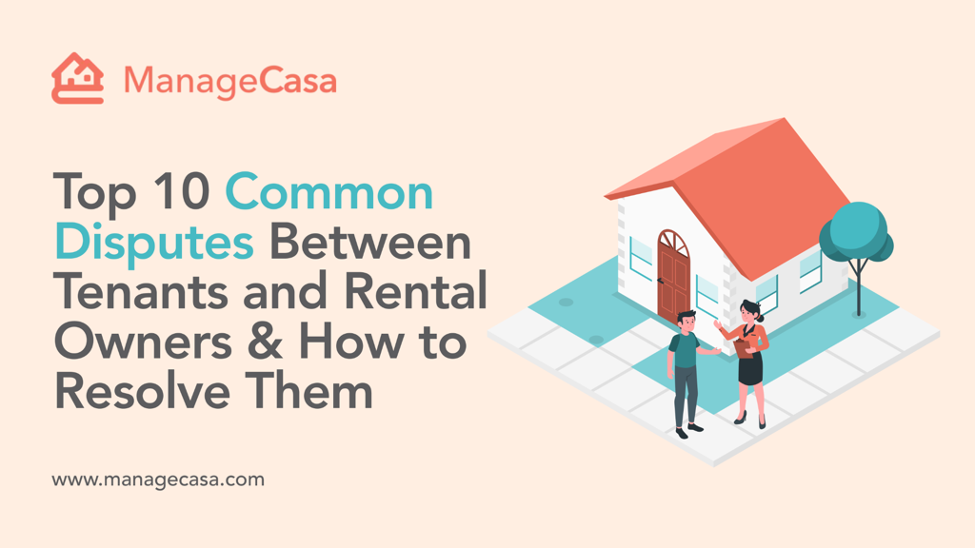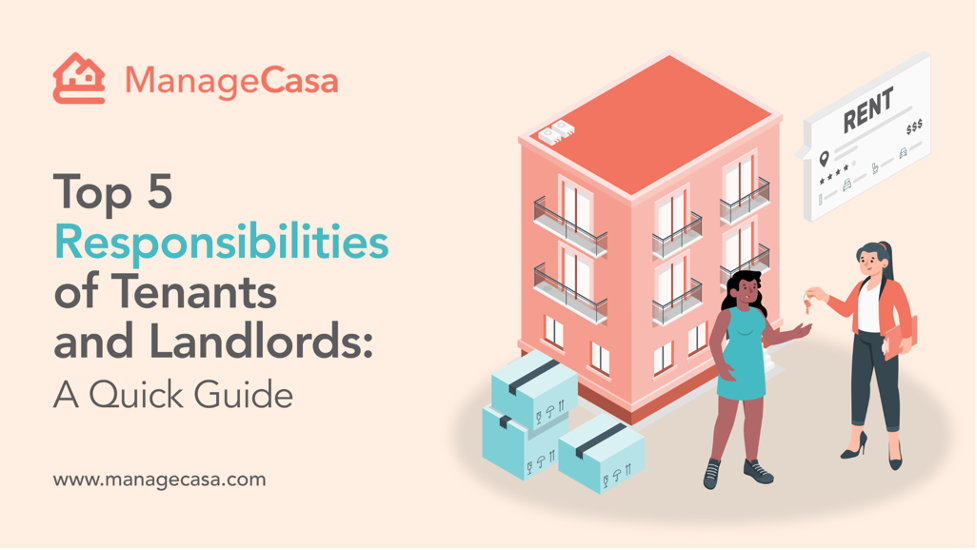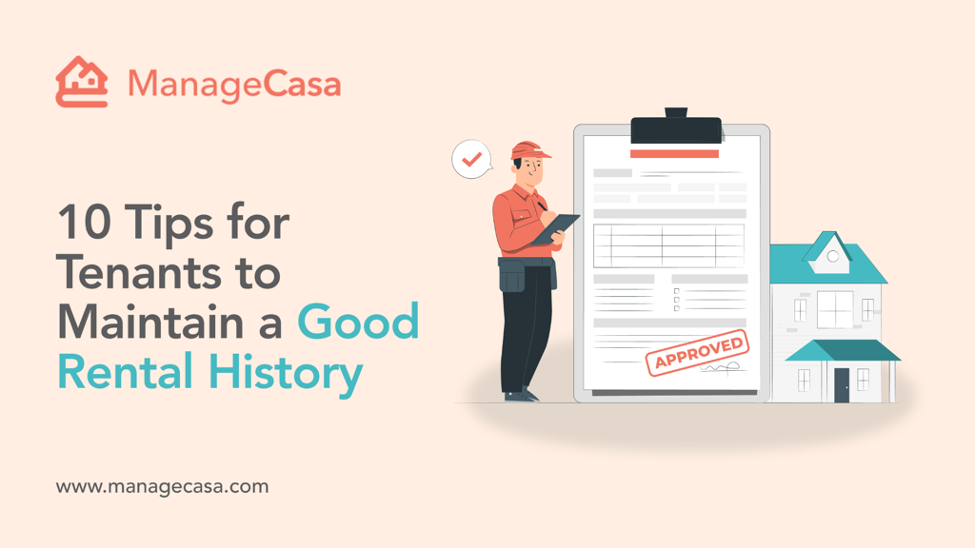10 Communication Tips for Tenants and Landlords
Good communication builds trust and makes rental living easier for both landlords and tenants. When both sides communicate clearly and respectfully, rent payments are on time, maintenance issues are resolved quickly, and everyone enjoys a better rental experience.
Poor communication, however, can lead to stress, misunderstandings, and even legal problems. This guide outlines 10 practical communication tips that help landlords and tenants strengthen their relationships, prevent disputes, and build a positive rental community.
ManageCasa has helped thousands of landlords, property managers, and HOAs streamline communication through technology and best practices. These insights are based on real experiences from managing residential communities nationwide. (Also, Check out Essential Tenant Rights & Rental Owner Obligations – get familiar with the rights and responsibilities that impact tenants and landlords.)
Let’s get started!
1. Start with a Clear Lease Agreement
Who Should Consider This: Landlord and Tenant
A clear, written lease is the foundation of every good rental relationship. It should define:
-
Rent amount, due dates, and payment methods
-
Security deposit details
-
Maintenance responsibilities
-
Rules on pets, guests, and noise
-
Renewal or termination conditions
Communication Tip: Use simple language so both sides understand the agreement. Review each clause before signing to avoid confusion later.
2. Keep Open and Professional Communication Channels
Who Should Consider This: Landlord and Tenant
Agree on how you’ll communicate — by email, phone, or a property management portal — and how quickly each person should respond.
-
Landlords should reply within 24 hours to tenant messages.
-
Tenants should report maintenance issues right away.
-
Keep all discussions polite, documented, and solution-focused.
Communication Tip: Use a property management app or portal that saves message history for easy reference.
3. Set Expectations Early
Who Should Consider This: Landlord and Tenant
Clarity prevents future problems. Landlords can give tenants a welcome packet covering:
-
Property rules and emergency contacts
-
Maintenance request procedures
-
Rent and payment FAQs
Communication Tip: Create a short tenant manual or digital FAQ with answers to common questions.
4. Respect Privacy and Boundaries
Who Should Consider This: Landlords
Tenants have a right to privacy. Landlords must give 24–48 hours’ notice before entering the property, depending on local laws.
Communication Tip: Send digital notices for scheduled visits and communicate quickly during emergencies. Respect builds trust and long-term loyalty.
5. Pay Rent on Time and Discuss Financial Issues Early
Who Should Consider This: Tenants
Paying rent on time helps maintain good standing and trust. If there’s a problem, notify your landlord before the due date. (Check This Survey on What landlords look for in potential renters)
-
Use automatic payments or reminders to stay consistent.
-
Communicate openly about financial difficulties.
Communication Tip: Early and honest conversations about payments prevent misunderstandings and late fees.
6. Report Maintenance Issues Promptly
Who Should Consider This: Landlord and Tenant
Maintenance delays often cause tenant frustration.
-
Tenants should report issues immediately.
-
Landlords should respond quickly and confirm repair timelines.
Communication Tip: Use an online maintenance request system that tracks updates and responses.
7. Stay Professional and Respectful
Who Should Consider This: Landlord and Tenant
Treat every interaction like a business relationship.
-
Avoid emotional or personal arguments.
-
Keep written records of agreements and problem resolutions.
Communication Tip: Use calm, neutral language when discussing concerns. Professionalism prevents escalation.
8. Build a Positive Community
Who Should Consider This: Tenants
A respectful community benefits everyone.
-
Follow quiet hours and property rules.
-
Landlords can host small community events to encourage connection.
Communication Tip: Clear community guidelines foster mutual respect and reduce neighbor complaints.
9. Offer Incentives for Lease Renewals
Who Should Consider This: Landlords
Rewarding responsible tenants encourages renewals and reduces turnover.
-
Offer rent discounts, waived fees, or small upgrades for loyal tenants.
-
Recognize positive behavior to build goodwill.
Communication Tip: Send renewal reminders early and personalize your message to each tenant.
10. Use Technology to Streamline Communication
Who Should Consider This: Landlord and Tenant
Modern tools simplify rental communication and reduce misunderstandings.
-
Landlords can send automated reminders for rent and maintenance updates.
-
Tenants can use digital portals to track requests and payments.
Communication Tip: Choose a secure, cloud-based platform that records messages and updates for accountability.
To dive deeper into effective landlord-tenant collaboration and rental management best practices, explore our Rental Handbook. It’s your go-to guide for mastering rental operations, communication, and compliance.
Are you looking for a platform that streamlines communication with your tenants and automates tasks like rent collection, due reminders, and more? Then you’re in the right place!
Make Communication Smooth and Rental Tasks Simple with ManageCasa
Effective landlord-tenant communication builds trust, prevents conflict, and keeps operations running smoothly. ManageCasa makes that possible with all-in-one tools for rent collection, maintenance tracking, and tenant management.
Why Choose ManageCasa
-
Tenant Screening: Verify applicants with trusted partners like TransUnion and Stripe
-
Automated Rent Collection: Accept ACH, credit, debit, and Apple Pay payments
-
Maintenance Management: Track repairs and vendor work from one dashboard
-
Accounting Tools: Automate ledgers and financial reports
-
Portfolio Management: Manage single-family, multifamily, and HOA properties effortlessly
ManageCasa is more than software — it’s your partner in smarter, more efficient rental management.
See how it works—Schedule a Free DEMO today!



